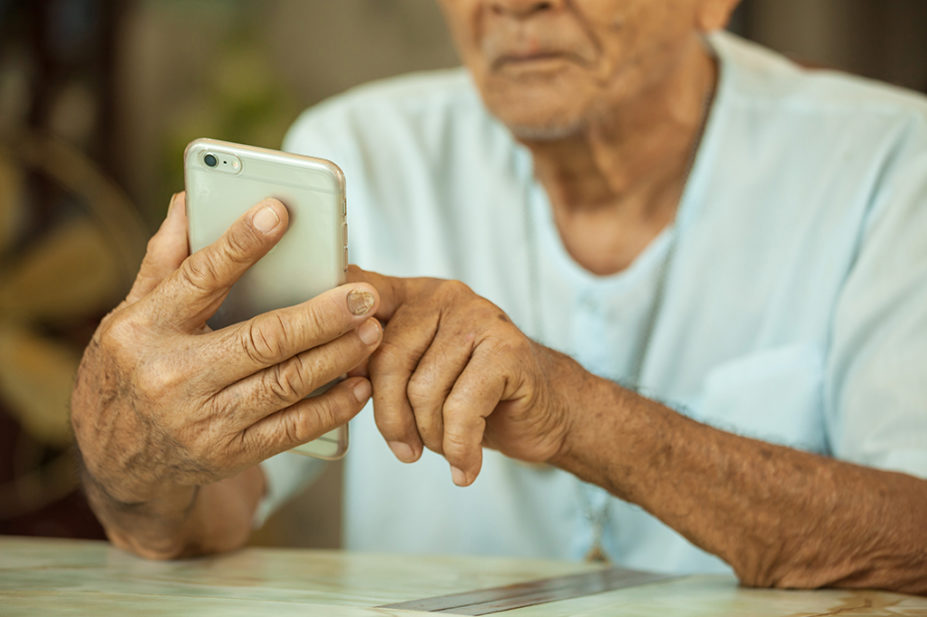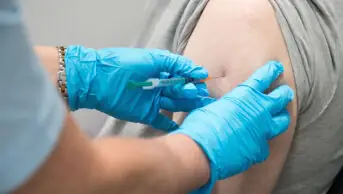
Shutterstock.com
A small number of high-risk patients may not be automatically contacted by COVID-19 medicines delivery units (CMDUs) to receive community-based treatment following a positive PCR test, owing to a “data mismatch”, NHS England has said.
CMDUs were set up in December 2021 to administer neutralising monoclonal antibodies (mAbs) and oral antivirals to a range of patients at high risk of progression to severe disease or death from COVID-19.
A document published by NHS England on 6 January 2022 — ‘Assessment, monitoring and management of symptomatic COVID-19 patients in the community‘ — states that the majority of eligible patients will be contacted by a CMDU within 24 hours of their positive test result.
However, it says a “small number of these highest risk patients may not be contacted by CMDUs due to data mismatch”, with patients advised to call their GP or NHS 111 for a referral to a CMDU if they have not been contacted within 24 hours.
Hospital teams have also been asked “to write to patients who cannot be identified centrally (e.g. newly diagnosed or those receiving chemotherapy or radiotherapy in the last six months)”.
“These patients will need to ask for referral and ask NHS Test and Trace for a PCR test to keep at home,” the document says.
A letter sent from NHS England to clinicians on 20 December 2021 explained that “a modest number” of patients in cohorts that could not be identified from NHS Digital’s data would not be automatically told about their eligibility for these treatments, including those who had received a new diagnosis since 15 November 2021.
“Most potentially eligible patients will automatically receive a PCR test from NHS Test and Trace by 10 January 2022 but patients you are asked to contact will need to request a PCR test from NHS Test and Trace to keep at home,” the letter said.
To receive treatment through a CMDU, patients belonging to at least one of ten high-risk cohorts (see Box) must meet stringent eligibility criteria, including a positive PCR test within the past five days, and onset of COVID-19 symptoms within the past five days.
Individuals with COVID-19 who require hospitalisation or oxygen, as well as children aged under 12 years or weighing less than 40kg, are not eligible for CMDU referral.
Currently there are two types of COVID-19 treatments available to eligible patients via CMDUs: neutralising mAbs — namely sotrovimab — which are usually given by infusion or injection in a local hospital or health centre; and the oral antiviral treatment molnupiravir, which is taken in capsule form at home.
Eligible patients should initially be considered for treatment with a mAb. However, where a mAb is contraindicated — for example, owing to hypersensitivity reaction to the active substances or to any of the excipients of sotrovimab — or the administration of a mAb is not possible owing to the patient’s circumstances, patients may be treated with a five-day course of molnupiravir.
Sotrovimab was approved by the Medicines and Healthcare products Regulatory Agency in December 2021 for people with mild-to-moderate COVID-19 and at least one risk factor for developing severe illness.
Patients who are not eligible for COVID-19 treatments could be eligible for the ‘Platform adaptive trial of novel antivirals for early treatment of COVID-19 in the community’, which, as of 7 January 2022, had recruited more than 2,600 participants across 25 sites to investigate the efficacy of molnupiravir against standard NHS care, defined as the currently recommended treatment delivered by responsible clinicians.
Box: Patient cohorts to be prioritised for treatment with neutralising monoclonal antibodies and oral antivirals
- All patients with Down’s syndrome;
- Some patients with a solid cancer, such as active metastatic cancer, or active solid cancers at any stage;
- Some patients with a haematological disease and stem cell transplant recipients (e.g. all patients with sickle cell disease);
- Some patients with renal disease (e.g. renal transplant recipients);
- Some patients with liver disease (e.g. those on immune suppressive therapy);
- Some patients with immune-mediated inflammatory disorders (those treatment with rituximab or other B cell depleting therapy in the past 12 months);
- Some patients with primary immune deficiencies (e.g. severe combined immunodeficiency);
- Some patients with HIV/AIDS (e.g. those with high levels of immune suppression);
- All solid organ transplant recipients;
- Some patients with rare neurological conditions, such as multiple sclerosis.
Any questions about antivirals?
Let us know if you have any questions about antiviral treatment for COVID-19 and we will get experts to answer them. Please email us your name, place of work and your question to editor@pharmaceutical-journal.com.


